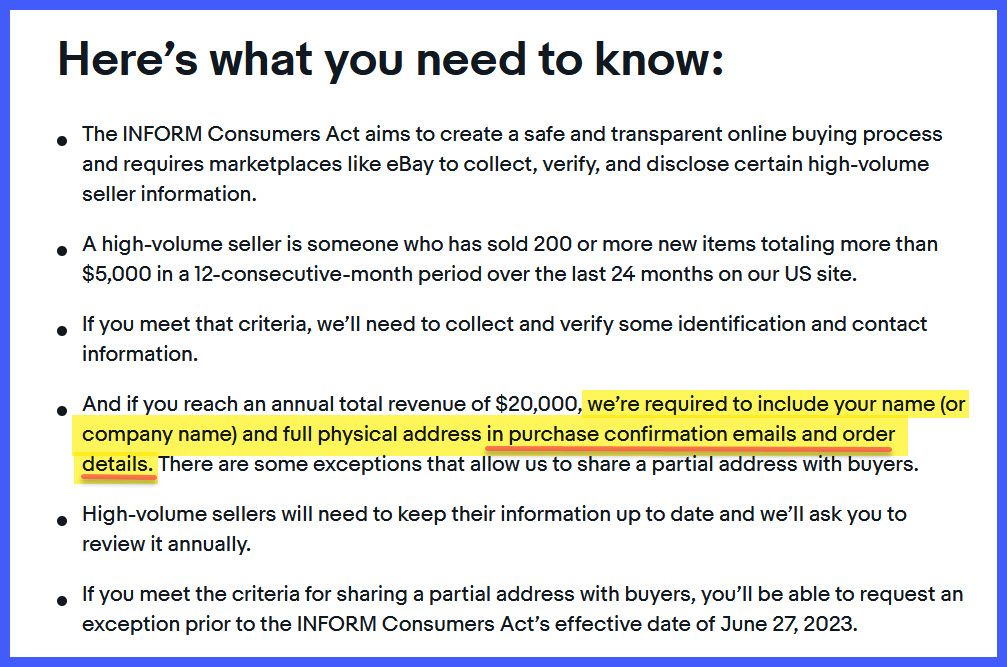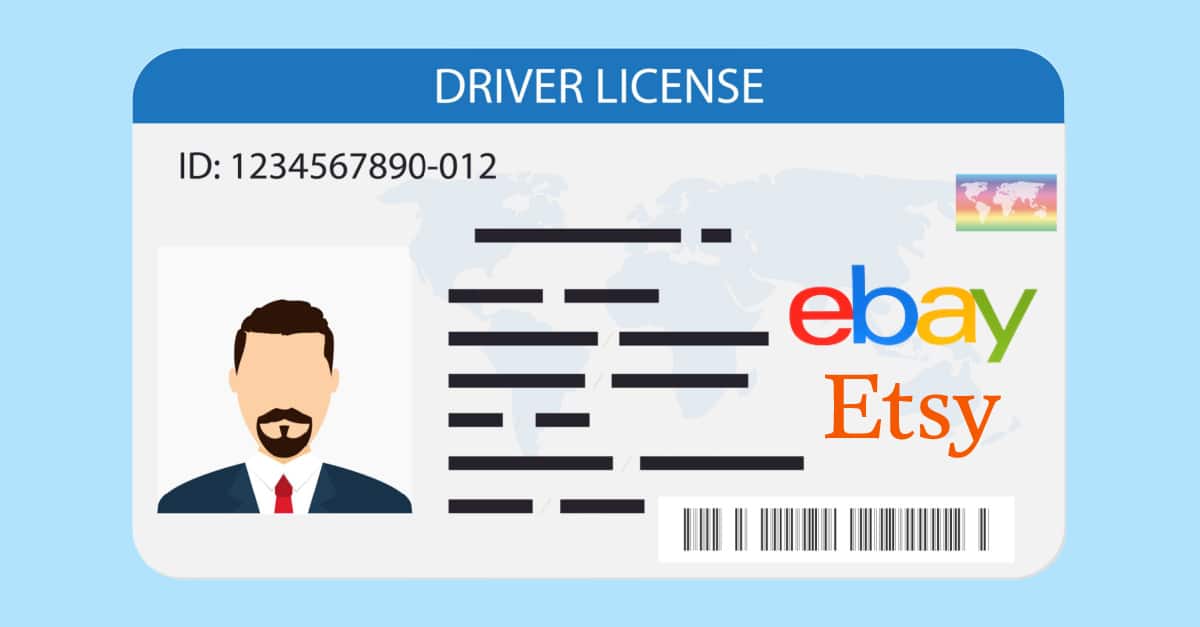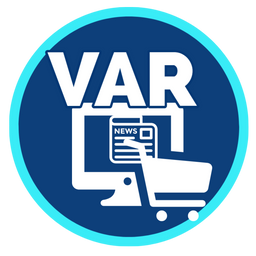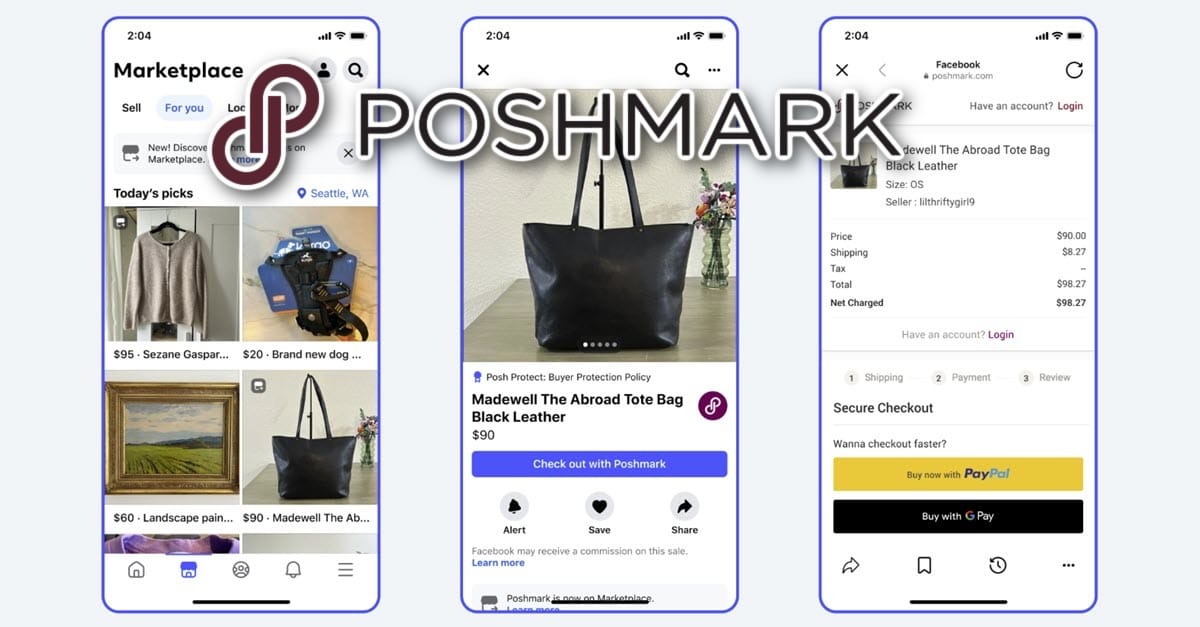What Ecommerce Sellers Need To Know About INFORM Consumers Act
UPDATE: 2-28-23
eBay has confirmed they will be using the option to disclose seller contact info in order confirmations only, not on the listing page, and the new requirements will go into effect June 27, 2023.


In case you missed it, the INFORM Consumers act was attached to the final version of the FY2023 Omnibus Bill that passed the Senate last week.
If you're not familiar with the INFORM act - it's the reason you've likely recently been asked to submit a copy of your government ID to marketplaces like eBay, Etsy, Mercari and others.

The legislation will require marketplaces to verify seller identity and contact information and, in some cases, provide that contact information to buyers in an effort to clamp down on internet fraud and protect consumers.
If you want to read it for yourself, the full text of the act can be found on page 2800 of the 4155 page bill. 👇
Or just keep reading for excerpts and a breakdown of what this new law may mean for sellers. 😉
Collecting and Verifying Seller ID and Contact Info
TL;DR: If you fit the definition of a "high-volume third-party seller", marketplaces are required to collect and verify your government-issued ID, tax ID, bank account, email and phone number.
An online marketplace shall require any high-volume third-party seller on such online marketplace’s platform to provide, not later than 10 days after qualifying as a high-volume third-party seller on the platform, the following information to the online marketplace:
BANK ACCOUNT - A bank account number, or, if such seller does not have a bank account, the name of the payee for payments issued by the online marketplace to such seller.
PROVISION OF INFORMATION - The bank account or payee information required may be provided by the seller in the following ways:
- To the online marketplace.
- To a payment processor or other third party contracted by the online marketplace to maintain such information, provided that the online marketplace ensures that it can obtain such information within 3 business days from such payment processor or other third party.
CONTACT INFORMATION - Contact information for such seller as follows:
With respect to a high-volume third-party seller that is an individual, the individual’s name.With respect to a high-volume third-party seller that is not an individual, one of the following forms of contact information:
- A copy of a valid government-issued identification for an individual acting on behalf of such seller that includes the individual’s name.
- A copy of a valid government-issued record or tax document that includes the business name and physical address of such seller.
TAX ID.—A business tax identification number, or, if such seller does not have a business tax identification number, a taxpayer identification number.
WORKING EMAIL AND PHONE NUMBER - A current working email address and phone number for such seller.
So, what exactly is a "high-volume third-party seller?"
If you have 200 sales of new/unused items, totaling $5,000 or more in a continuous 12 month period - you're considered a high-volume third-party seller.
The term ‘‘high-volume third-party seller’’ means a participant on an online marketplace’s platform who is a third-party seller and, in any continuous 12-month period during the previous 24 months, has entered into 200 or more discrete sales or transactions of new or unused consumer products and an aggregate total of $5,000 or more in gross revenues.
Resellers and consumer sellers using marketplaces to get rid of personal items are likely breathing a sigh of relief about the new vs used distinction.
We'll have to wait and see exactly how the marketplaces will implement this part, but my guess is they probably go by the condition option the seller selects when listing an item.
Disclosing Seller Contact Info to Consumers
While marketplaces are required to verify the information of all "high-volume third-party sellers", the INFORM act sets a different threshold for when and how that information must be disclosed to consumers.
TL;DR: If you have $20,000+ in gross annual sales, marketplaces are required to disclose your name or company name, physical address, and contact information (phone, email, or other means of electronic messaging) - with some exceptions.
DISCLOSURE REQUIRED - An online marketplace shall require any high-volume third-party seller with an aggregate total of $20,000 or more in annual gross revenues on such online marketplace, and that uses such online marketplace’s platform, to provide the information described in subparagraph (B) to the online marketplace; and disclose the information described in subparagraph (B) to consumers in a clear and conspicuous manner
- on the product listing page (including via hyperlink); or
- in the order confirmation message or other document or communication made to the consumer after the purchase is finalized and in the consumer’s account transaction history.
INFORMATION DESCRIBED - The information described in this subparagraph is the following:
- The identity of the high-volume third party seller, including the full name of the seller, which may include the seller name or seller’s company name, or the name by which the seller or company operates on the online marketplace
- the physical address of the seller
- contact information for the seller, to allow for the direct, unhindered communication with high volume third party sellers by users of the online marketplace, including a current working phone number; a current working email address; or other means of direct electronic messaging (which may be provided to such seller by the online marketplace), provided that the requirements of this item shall not prevent an online marketplace from monitoring communications between high volume third party sellers and users of the online marketplace for fraud, abuse, or spam.
Whether the high-volume third party seller used a different seller to supply the consumer product to the consumer upon purchase, and, upon the request of an authenticated purchaser, the information described in clause (i) relating to any such seller that supplied the consumer product to the purchaser, if such seller is different than the high-volume third party seller listed on the product listing prior to purchase.
My guess is most marketplaces will take the option of disclosing this information in order confirmations rather than publicly on the listing page - that will allow them to maintain some control in preventing buyers from contacting sellers before the sale to take the purchase off site.
It appears that is what eBay is doing and I won't be surprised if others do as well.

And if you reach an annual total revenue of $20,000, we’re required to include your name (or company name) and full physical address in purchase confirmation emails and order details, but there are some exceptions.
"Other means of electronic messaging" will presumably also allow eBay, Etsy etc. to continue having buyers and sellers use the marketplace's messaging system rather than providing direct contact email addresses.
The last paragraph in the section above is very interesting indeed and could dramatically change how dropshippers do business on these marketplaces.
Whether the high-volume third party seller used a different seller to supply the consumer product to the consumer upon purchase, and, upon the request of an authenticated purchaser, the information described in clause (i) relating to any such seller that supplied the consumer product to the purchaser, if such seller is different than the high-volume third party seller listed on the product listing prior to purchase.
This means anyone selling over $20,000 on any marketplace will have to disclose if they drop ship or use online arbitrage (for example selling items on eBay that they then order from other sellers on Amazon) - which is huge! 👀

Exclusions
Sellers who work from home have expressed privacy and safety concerns about having their addresses and phone numbers possibly posted publicly.
As mentioned above, marketplaces may opt to only show the information on order confirmations, which would be better than publicly on the listing pages as far as privacy is concerned.
Beyond that, the act provides exceptions for residential and personal contact details.
EXCEPTION - upon the request of a high-volume third party seller, an online marketplace may provide for partial disclosure of the identity information required under paragraph (1)(B) in the following situations:
- If such seller certifies to the online marketplace that the seller does not a business address and only has a residential street address, or has a combined business and residential address, the online marketplace may disclose only the country and if applicable, the State in which such seller resides; and inform consumers that there is no business address available for the seller and that consumer inquiries should be submitted to the seller by phone, email, or other means of electronic messaging provided to such seller by the online marketplace.
- If such seller certifies to the online marketplace that the seller is a business that has a physical address for product returns, the online marketplace may disclose the seller’s physical address for product returns.
- If such seller certifies to the online marketplace that the seller does not have a phone number other than a personal phone number, the online marketplace shall inform consumers that there is no phone number available for the seller and that consumer inquiries should be submitted to the seller’s email address or other means of electronic messaging provided to such seller by the online marketplace.
Again we'll have to see how each marketplace will implement this and how sellers will be able to certify to the marketplaces that they qualify for exemption.
If sellers make false representations to try to gain an exception or refuse to provide the required information, the marketplaces are required to suspend the account until such time as it is in compliance.
The marketplaces are also required to provide a way for consumers to report suspected fraud, counterfeits, or other unfair or deceptive practices via phone and electronic means.
REPORTING MECHANISM - An online marketplace shall disclose to consumers in a clear and conspicuous manner on the product listing of any high-volume third party seller a reporting mechanism that allows for electronic and telephonic reporting of suspicious marketplace activity to the online marketplace.
Enforcement power for the INFORM act is granted to the Federal Trade Commission and the act will be effective 180 days after the date of enactment.
Do you think the INFORM act will help curb online fraud? Do you have questions or concerns about how this new law will impact online sellers? Let us know in the comments below!


















